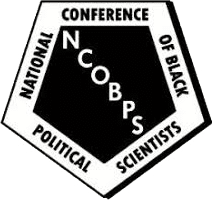It is with deep sadness that we report the death of Dr. Lucius J. Barker. He died on June 21st at the age of 92. He was preceded in death by his wife, Maude Barker, who passed away in May. He had an illustrious career, spent mostly at Stanford University and Washington University in St. Louis, where he served as chairs of the political science departments.
Throughout his career he teamed with his brother, Twiley Barker, to author several studies on constitutional law and judicial decision-making. The Barker brothers belonged to a Louisiana-based lineage of Black political scientists with strong ties to Southern University and A & M College. Dr. Rodney Higgins, who mentored the brothers at Southern, introduced them to the field of constitutional law. They returned to teach at the university in the mid-1950s after receiving their doctorates.
Dr. Barker had an extensive research catalogue. His major works include African Americans and the American Political System (co-authored with Mack Jones and Katherine Tate), Civil Liberties and the Constitution: Cases and Commentaries (co-authored with Michael Combs, Kevin Lyles, H.W. Perry Jr., and Twiley Barker), and Freedom, Courts, Politics: Studies in Civil Liberties (co-authored with Twiley Barker).
His leadership in the political science discipline was just as impressive as his scholarship. He was elected President of the Midwest Political Science Association in the mid-1980s. He was President of NCOBPS from 1983-1984. He served from 1989-1993 as the inaugural editor of the organization’s long-lasting journal, the National Political Science Review (now the National Review of Black Politics) He was the second African American to serve as President of the American Political Science Association (APSA) from 1992-1993.
During his tenure as NCOBPS president, the organization engaged in an energetic debate about the viability of Jesse Jackson’s presidential campaigns. Emerging from these debates were numerous publications on Black presidential politics. Barker was instrumental in this research trajectory. He co-edited (with Ronald Walters) Jesse Jackson’s 1984 Presidential Campaign: Challenge and Change in America. He wrote about his involvement in Jackson’s first presidential campaign in Our Time Has Come: A Delegate’s Diary of Jesse Jackson’s 1984 Presidential Campaign.
Barker’s experiences growing up in the Jim Crow South shaped his broader perspectives about pluralism and political institutions. His 1994 essay in the American Political Science Review titled, “Limits of Political Strategy: A Systemic View of the African American Experience,” examined the range of political strategies used by African Americans, e.g. litigation, electoral politics, interest group pressures, party politics, and direct action. Each strategy, he argued, was limited in its ability to sustain racial justice. This was of no fault of African Americans, but due to the failings of American democracy. Still undeterred, he insisted that creating a fair and equitable society requires “extraordinary leadership” and persistent advocacy.
Expanding the boundaries of the political science discipline was another theme of Barker’s research and advocacy. In 2005, Perspectives of Politics assembled 12 APSA presidents to reflect on the state of the discipline. In his commentary, Barker criticized the “gatekeepers” of the discipline for doing little to remedy the marginalization of African Americans, Latinos, and Native Americans. The exclusion of these voices from the flagship journals also reflected the political science discipline’s inattention to racial equality. He urged political scientists to “act with courage and without fear”—to “express outrage” about the injustices in the political science discipline and the broader society.
NCOBPS celebrates Barker’s life work, mentorship, and scholarship. His death comes at an inflection point in the twenty-first century. As street protests continue to highlight racial injustices, Black political scientists and others are pushing society, their institutions, and the discipline to address systemic inequalities. The collective writings and leadership of Barker suggest that righteous outrage, along with the push for systemic change and disciplinary transformation, are essential to addressing the failings of the U.S. pluralist design. We hope that his death brings forth a new call to action to develop generations of political scientists who will commit themselves to racial justice.
